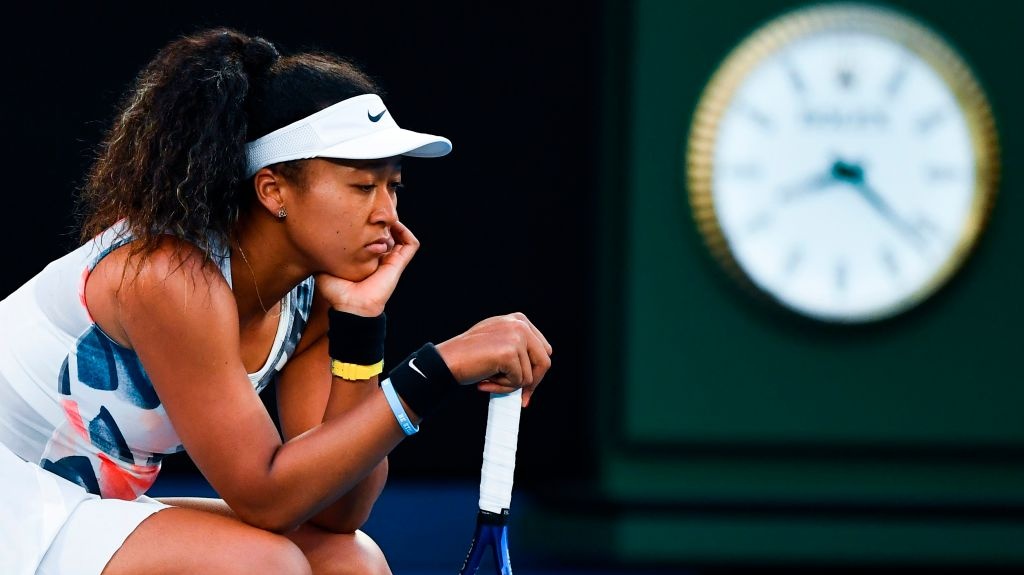If you’re interested in sharing your opinion on any cultural, political or personal topic, create an account here and check out our how-to post to learn more.
Opinions are the writer’s own and not those of Blavity's.
____
Naomi Osaka has been trending on social media for her recent stance against the media, and ultimately The French Open, in the name of mental health, citing she needed to "take some time away from the court," as she shared in an Instagram post.
Earlier in the week, Osaka had landed herself a $15,000 fine for skipping "mandatory media interviews" and was threatened with expulsion from the tournament and future Grand Slams if she continued not to speak to the media.
The global tennis star had decided not to participate in any news conferences during Roland-Garros.
"I've often felt that people have no regard for athletes' mental health, and this rings very true whenever I see a press conference or partake in one," she wrote in past Twitter and Instagram posts. "We’re often sat there and asked questions that we’ve been asked multiple times before or asked questions that bring doubt into our minds, and I’m just not going to subject myself to people that doubt me."
— NaomiOsaka大坂なおみ (@naomiosaka) May 26, 2021
What Osaka is doing is not only important, but it opens up the floor for her peers to demand respect for the abuse and turmoil they put their bodies and minds through while navigating competitive sports.
She has every right to protect her mental health and her game. In fact, we should be applauding her actions instead of questioning them. It takes a lot for someone to come out and say they can't do something because of what the possible impact can have on their mental and emotional being. It should never be dismissed or ignored. Nor should she have to quantify or justify it to anyone.
It would be remiss not to acknowledge that coming out of a worldwide pandemic has impacted millions of people, particularly athletes. Professional athletes have a specific set of skills, and you can imagine when those skills aren't able to be utilized for a year or more it can cause issues.
The fact that this has become an international debate, with some saying that she, like all public figures, has a responsibility to the media over her sanity, is almost imaginable.
But in an even more disgusting turn of events, in a now-deleted tweet, the official account of Roland-Garros posted photos of several other athletes participating in media responsibilities with the caption, "They understood the assignment."
Not only was the statement insensitive, but it gentrified the popular term, commonly used within Black Twitter, in a sick way to try and shame Osaka.
The debate recently came to a head when the legendary tennis star Billie Jean King jumped into the conversation to share her thoughts.
"I fully admire and respect what Naomi is doing with her platform, so I am a little torn as I try to learn from both sides of this situation," she shared on her Twitter post. "While it's important that everyone has the right to speak their truth, I have always believed that as professional athletes we have a responsibility to make ourselves available to the media."
King went on to note how the press gave her and her peers visibility, and helped them build and grow the sport into what it is today.
My thoughts on Naomi Osaka’s decision not to speak with the press at Roland-Garros. pic.twitter.com/BzvHDU3DQY
— Billie Jean King (@BillieJeanKing) May 30, 2021
Reflecting back on Mental Health Awareness Month in May, this couldn't be a more bitter example of the hypocrisy constantly spewed about taking mental health seriously — but not if the athlete in question is a person of a color that is needed to line pockets and fill seats.
Historically, the main stakeholders in the sports industry come down to one select group— old, white men. And the majority of the athletes they capitalize on are Black. Black athletes, in particular, are often expected to perform at peak athletic excellence while constantly having to navigate hostile and harmful spaces.
We don't expect or require people like billionaire Jeff Bezos to do press interviews for every move they make — so why are Black athletes?
This discussion has exposed the systemic exploitation of athletes of color. Nobody should be coerced or forced into doing press. They are humans with agency who deserve compassion and respect.
I stand in solidarity with Osaka. She is doing what should've been done on behalf of athletes a long time ago — standing up for what's right. No one, not even professional athletes, should have to choose between their health, both physically and mentally, or a paycheck.
